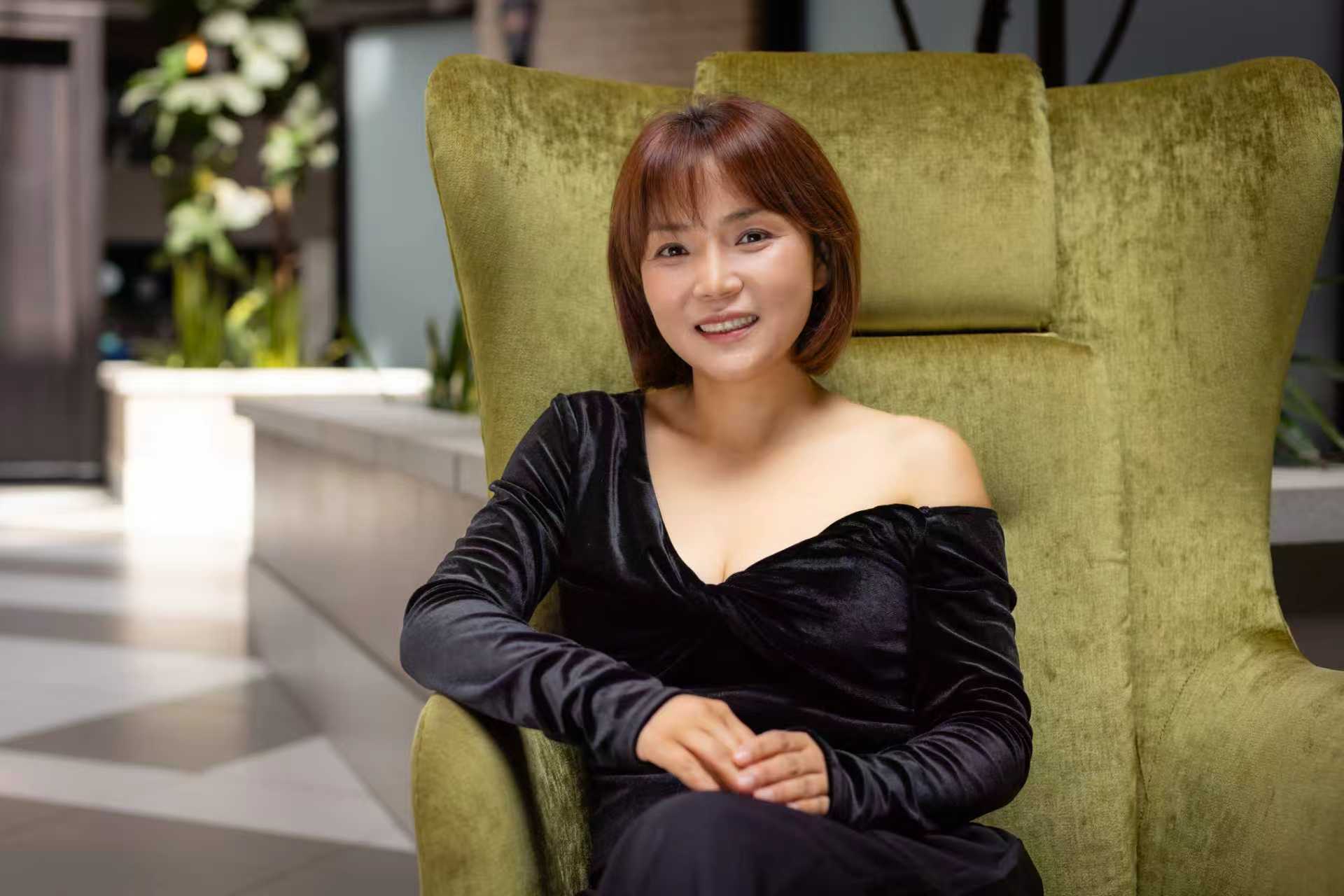We were lucky to catch up with Sasha Leslie recently and have shared our conversation below.
Sasha, so good to have you with us today. We’ve always been impressed with folks who have a very clear sense of purpose and so maybe we can jump right in and talk about how you found your purpose?
I keep my creativity alive by looking at my everyday life and background. When I first started out, I remember I was excited to just make art; however, I was unaware of the process that followed. I think some of the best advice I’ve received was keep a sketchbook not just for drawing, but for writing down ideas and keeping thumbnails as well. While I didn’t think much of it at first, I found that having a space to organize my thoughts both visually and verbally helped me set my work up in the way I really wanted to.
A big part of keeping creativity alive is embracing the boring aspects of creative life. As artists, we’re often only shown the end result of art, and there’s no emphasis on the process leading up to it. Part of this does come from today’s internet landscape as well; we’re only shown the good parts of other’s lives, so who knows what’s going on behind the scenes? I find that when you come across this constantly, it can make you question your own worth as an artist.
So, to keep myself going, I embrace the tedious aspects; I do a lot of sketching, doodling, and research. I also like to look into my own everyday life for inspiration as well, especially the subjects I’m drawn to. I find that I’m especially inspired by posters, stickers, and even music. Most media and goods we consume today have an aspect of craftsmanship to them. But, I also enjoy the more mundane aspects of life; I’ve really embraced my morning commute and have begun to draw inspiration from public transportation and the variety of people I’ve met there. Los Angeles is such a big, beautiful city with so many different people and cultures, and that’s something I don’t think anyone can replicate anywhere.

Thanks, so before we move on maybe you can share a bit more about yourself?
I’ve always considered myself a creative person – I also think I knew I wanted to be an artist, but never knew how to navigate turning it into a career. Growing up, I would find myself drawing a lot, trying to mimic what I saw from TV shows and video games. I was also very passionate about fashion, taking inspiration from my dolls when it came to dressing up.
When I was in my junior year of high school, I began making and selling jewelry. I quickly found a passion in the idea of how my work impacted people; seeing my jewelry being worn around school and shared with others made me feel great, and I felt like in a way, I was helping others express themselves. This idea kept me motivated to keep creating, leading me to pursue art in college.
As of late, I’m focusing on graphic design; I really came to adore the idea of using my artistic skills to convey messages to others, and hope to continue that skill. I’ve always had a passion for using my skills and creativity to spread a message, and hope I can achieve that goal through my own unique voice. Now, more than ever, art is a tool of expression, one that we shouldn’t let go unheard.

If you had to pick three qualities that are most important to develop, which three would you say matter most?
I realize now that I’ve always been an ambitious person, but one thing was holding me back: I didn’t like to ask for help. I used to believe that talent and skill was something that was simply within you, not something you developed over time. So, when I began my creative path, I remember the frustration I felt because I wasn’t somehow doing amazing after one try, as opposed to what I was used to seeing, which was always the final result. I also didn’t have the discipline I do now, so I found it hard to know when it was time to stop looking and start creating.
A common misconception is that creative people just grow and don’t need advice from others. However, this couldn’t be further from the truth. Like I mentioned earlier, I didn’t want to ask others for help when I started out, so I never really allowed myself to grow. Receiving feedback from others allows you to see things you may have never noticed before, or gain a new perspective on a topic you’ve become well versed in. This is why I think creative critiques are integral to our field; they provide us a chance to put our work in front of different people and receive different opinions. Sometimes, these people may even give your work meaning that you never noticed before!
When I found myself stumped, I used to turn to what others are doing on social media. It’s so easy to use social media to find inspiration; after all, there’s just so much to see online. On the other hand, social media doesn’t show us the full picture; we may see the end result of a work of art, but not the process behind it. Although it may not be overt, it feels like there are certain standards to uphold with social media art and the trends that follow. For me, I’ve found limiting my time online benefits my creative process in terms of helping me avoid creative overwhelm. I also follow artists that I personally enjoy; by this, I mean having artists that personally align with my own aesthetic or beliefs. To combat this, I like to set aside time to just practice and doodle in my sketchbook; but this can be different for everybody. I personally like to balance out my time practicing and my time creating “complete” works. I’ve found that this takes a good amount of stress off of me.
I think another quality I possess now that I didn’t earlier was time management skills. During the pandemic, I had entered college and a lot of my classes at the time were online, so I didn’t know how I should structure my days and when to do what. As a result, I found myself with a lot of free time – much of which was wasted. I was never taught how to properly manage my time or set goals for myself, so this was something I had to learn by trial and error. Tying this back into creativity, it’s important to have a schedule for yourself as a working creative because there’s so many different duties we have to fulfill. More often than not, we don’t even realize that being a professional creative comes with different nuances – administrative work, marketing, or financing, to name a few. As mundane as these tasks appear to us, they may ultimately make you appreciate the creative process even more. Learning how to effectively manage your time not only allows you to be your best self when it’s time to work, but also allows you to step back and take a break when you need it.
What I like to tell others is to learn how to balance your time and put yourself first. In a world where we’ve become increasingly busy, it can be hard to find time to do the things we really look forward to. But, I am a firm believer that even doing what you love for 10 minutes a day will set you into a better path. When it comes to creativity, another token of advice I like to live by is not to focus on making every piece “complete” – there are the inevitable bad art days, or the ones we just don’t want to continue working on. However, these are not definitive of us; rather, they are experiences we can learn from and move forward with.

What would you advise – going all in on your strengths or investing on areas where you aren’t as strong to be more well-rounded?
Having our own strengths can contribute to our own personal styles and make our work easily identifiable. Although there’s nothing wrong with emphasizing and continuing to work on the strongest areas of your craft, I believe putting time aside to focus on our weaker areas can make you better at what you do, including your strengths. Even if you don’t believe anyone else is paying attention to these, practicing and knowing you’re improving can help you feel more confident in your work. Personally, I have experience with cutting corners in my work to avoid the concepts I’m not as strong in, only to be even more unhappy with the result. Sometimes, I like to challenge myself by giving myself work harder than what I’m used to. Pushing yourself the extra mile occasionally can benefit all areas of your work and enhance your strengths even further.
Contact Info:
- Website: https://sashasshack.square.site/
- Instagram: https://www.instagram.com/sashas.shack/
- Linkedin: https://www.linkedin.com/in/sasha-leslie-b36202255/ (Sasha Leslie)
- Other: pinterest – sashas-shack

Image Credits
Sasha Leslie, Andrew Jenkins
so if you or someone you know deserves recognition please let us know here.




